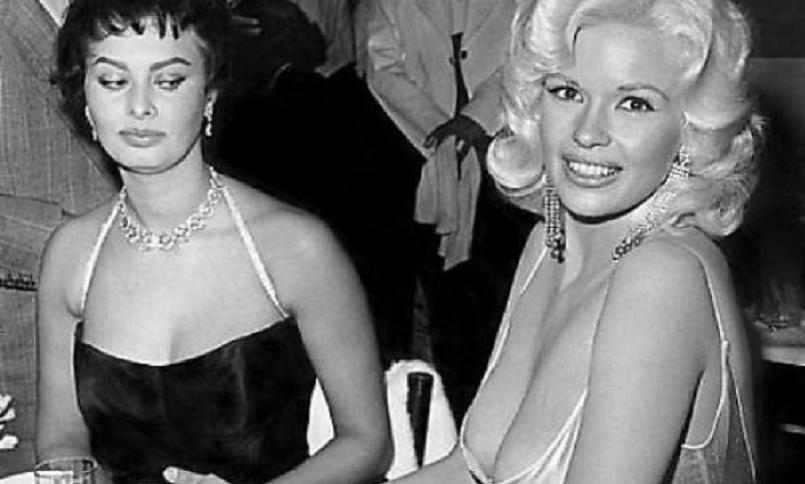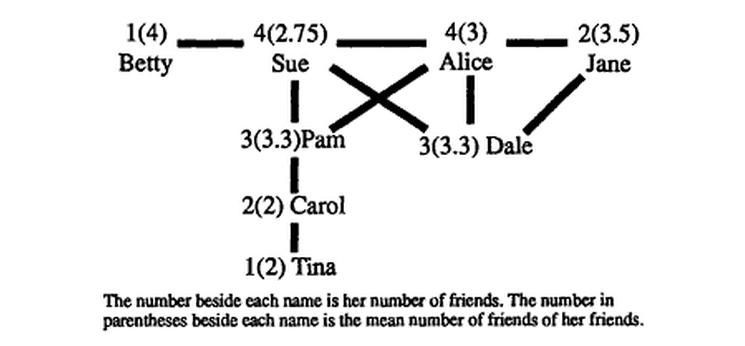Mathematical Formula Explains Why There Will Always Be People More Popular, Richer, & Happier Than You
2014.01.16
Ever feel like your friends are more popular, richer, and happier than you? You're not alone. But the real truth is that those very same people have probably felt the exact same way about somebody else within their own social circles.

In order to understand all this, you'll need to familiarize yourself with the "friendship paradox", which was first discovered by Scott Feld back in the 90s. The term explains on why some people tend to have fewer friends than their own friends.
Turns out that super-popular people are the ones who create the paradoxical effect, since people who have a ton of friends are more likely to be your friend in the first place. It is also this paradox that makes us feel bad about ourselves.

This can be further explained in the mathematical formula above, which was discovered by social network scientists Young-Ho Eom and Hang-Hyun Jo. The formula is based on conditions under which a characteristics like wealth and happiness of a social group will follow the same trend as the friendship paradox:

In order to understand all this, you'll need to familiarize yourself with the "friendship paradox", which was first discovered by Scott Feld back in the 90s. The term explains on why some people tend to have fewer friends than their own friends.
Turns out that super-popular people are the ones who create the paradoxical effect, since people who have a ton of friends are more likely to be your friend in the first place. It is also this paradox that makes us feel bad about ourselves.

This can be further explained in the mathematical formula above, which was discovered by social network scientists Young-Ho Eom and Hang-Hyun Jo. The formula is based on conditions under which a characteristics like wealth and happiness of a social group will follow the same trend as the friendship paradox:
The scientists suggest that other features of social networks, like wealth and happiness, are likely to behave the same way as citations and publications.
They call these "high characteristics" and they have a positive correlation with the number of friends of friends, i.e. your friends are wealthier and happier than you. These kinds of characteristics of a social network follow the same kind of pattern that we see in the original friendship paradox, the scientists say, and it happens because we're looking at a biased sample of our friends.
"When we compare our characteristics like popularity, income, reputation, or happiness to those of our friends, our perception of ourselves might be distorted as expected by the GFP," Eom and Jo say in the paper.
So in short, the only way you'll be able to escape feeling inferior to other is either by accepting it or becoming a recluse in the mountains. You can read the rest of the findings via the open access pre-publication database arXiv.They call these "high characteristics" and they have a positive correlation with the number of friends of friends, i.e. your friends are wealthier and happier than you. These kinds of characteristics of a social network follow the same kind of pattern that we see in the original friendship paradox, the scientists say, and it happens because we're looking at a biased sample of our friends.
"When we compare our characteristics like popularity, income, reputation, or happiness to those of our friends, our perception of ourselves might be distorted as expected by the GFP," Eom and Jo say in the paper.
More Articles
Copyright © Fooyoh.com All rights reserved.